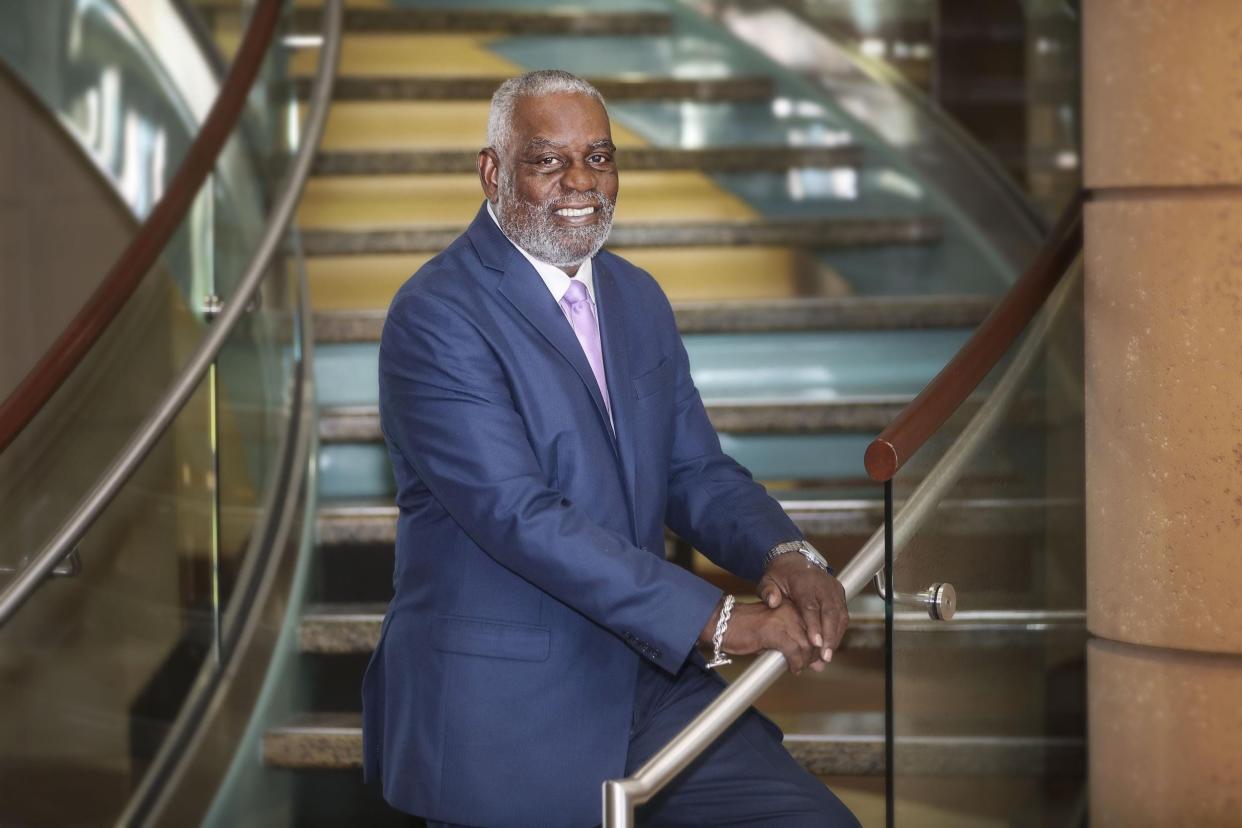West Palm Beach to spend up to $300,000 studying women and minority business assistance
The West Palm Beach City Commission voted unanimously to spend up to $300,000 on a study that will show if there is an ongoing need for the city's women- and minority-owned business assistance program.
The current program was established in 2019 after a four-year study of city contracts showed that firms owned by women and minorities were not getting a fair share of that contract work.
In 2020, the first full year of the program, less than half a percent of the contract money firms competed to get went to firms owned by women or minorities, according to information compiled by the Office of Small and Minority/Women Business Programs.

By 2023, the last full year for which there is data, women- and minority-owned firms were getting just about 2.2% of city contract money.
The amount of contract money women- and minority-owned firms competed to get went from $283,519 in 2020 to more than $1.5 million in 2023.
"We still have work to do, but we are making progress," said Mayor Keith James, whose administration has established various programs aimed at helping firms owned by women and minorities, known as minorities/women business enterprises or M/WBEs in the industry.
Supreme Court's 1989 ruling to help minority/women businesses has often been contentious
The U.S. Supreme Court's ruling in 1989 allowed governments to establish programs to help M/WBEs. The establishment of those programs is often contentious, as some white business owners and trade groups view them as a form of reverse racial discrimination.
That was the case seven years ago when Palm Beach County and its Solid Waste Authority hired a consultant to study their contracting.
The Florida chapter of the Associated General Contractors of America disputed the Solid Waste Authority study, questioning its methodology. AGC hired its own consultant, who said the study was “too flawed” to be relied upon as a basis for the re-establishment of gender- and race-based assistance programs.
The county and the Solid Waste Authority ultimately established programs.
WEST PALM NEWS: As renovated Sunset Lounge sits idle, leaders assure they have a plan, reopening timetable
Many women and minority business owners say assistance programs are critical in helping them get a fair share of government contract work. M/WBEs often lack the track record, financial backing and networking of competitors and either lose out to them or don't even attempt to get government contracts.
The Supreme Court ruling said assistance programs had to be narrowly tailored and could be established only after a statistical analysis showed the need for them.
Even then, some programs have come under attack by business owners who argue that the market conditions that justified their establishment have changed.
How often does West Palm review its business assistance programs?
West Palm Beach code authorizes a review of the city's business assistance programs every five to seven years.
Frank Hayden, director of the Office of Small and Minority/Women Business Programs, told commissioners the city has taken a variety of steps to give M/WBEs a better shot a city contracts.
The city has provided free marketing consultation, bond readiness and technical assistance, funded a COVID-19 recovery loan program and start-up or marketing grants. The city has also published a "Doing Business with the City" guidebook and provided tips on how to respond to government requests for proposals.
Firms have to be certified by the city to get contract work, a process set up to ensure that taxpayer money is not provided to a firm that does not have the experience or expertise to get the job done. Time- and often cash-strapped M/WBEs have reported that becoming certified is a tall order.
WEST PALM NEWS: City will contribute $166,000 to rebuild of iconic LGBTQ bar Roosters
Hayden said West Palm Beach has gone beyond simply helping firms get certified.
"The thing that we discovered in this journey was getting firms certified, making sure they got opportunities to perform work, was just the tip of the iceberg," he said. "What we discovered is that a lot of these firms required a little extra assistance.
"I've said it a lot of times when I'm out speaking: You can find people who will be able to put windows in and doors in. But at the same time, they don't know how to market their business. They don't know how to sell their business."
As commissioners contemplated Hayden's request for disparity study money, women and minority business owners looked on from the audience.
Many of them told commissioners about why they got into business and how they were seeking to help their communities.
"My family and I had a vision years ago," said Craig Glover of A Better Way Home Care, which helps veterans through a contract with the city's Community Redevelopment Agency.
WEST PALM NEWS: Former mayor says Harriet Himmel Theater renovations threaten building's history
"We wated to be in a community that was underserved. We come from those communities. We wanted to bring a business to those communities that demonstrates that we can be successful. And then we also wanted to make an impact on those communities."
Commissioners praised the business owners and said they were eager to continue providing assistance.
"I would like to acknowledge the tremendous difference that I've seen over the last five years," Commissioner Shalonda Warren said.
Want more West Palm Beach news?
Sign up for our Post on West Palm Beach weekly newsletter, delivered every Thursday!
Wayne Washington is a journalist covering West Palm Beach, Riviera Beach and race relations at The Palm Beach Post. You can reach him at wwashington@pbpost.com. Help support our work; subscribe today.
This article originally appeared on Palm Beach Post: West Palm to pay for disparity study of minority and women businesses
